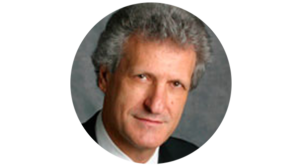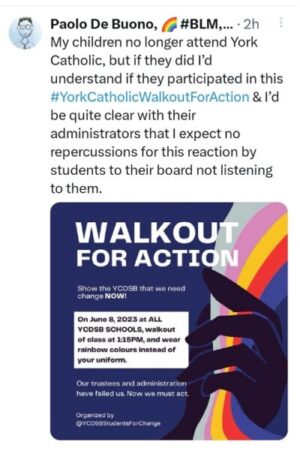Character, Program and Money
TORONTO – From my perspective, this is a trilogy that shapes, and more often than not, guides and governs our behaviour. Our social, cultural and economic practices are its manifestation.
It is a recurring theme in “politics”, the world of sport and business. Recently, Robyn Sears, a political advisor and commentator, broached the theme in his assessment of the candidates vying for the mayoralty of Toronto.
Oddly, we abjure the same clinical analysis in assessing the delivery of a comprehensive education for that which we hold most dear: our children – society’s future.
Anyone who follows the “superstars” in soccer, for example (Zlatan Ibrahimovich, Messi, Ronaldo, to name a few), will always speak to their regimen of practice, their focus/drive and the investment personal resources they dedicate to success.
A recent decision by the York Catholic District School Board (YCDSB), to uphold the “trilogy”, as it pertains to their model for the success of the individual and the collective recognized in law, has met with discomforting “demonizations” of those who respect Chair Alexander’s explanations for the decision.
“An expression of hate by institutionalized religion of haters”, say self-serving lobbyists for the “progressive agenda”. Parents, heretofore quiet on this matter, seem to have awakened to a new challenge to their authority over their children. They allowed, consented [to] or instructed their offspring to stay away from classes until people come to their senses.
That may take a while. That lobby group (aided and abetted by school board employees and administrations everywhere in the Golden Horseshoe (in both Catholic and Public-school boards) has taken to a counter tactic of encouraging their “allies” to keep their children home to protest the YCDSB’s compliance with its vision statement and its constitutional obligations. Their strategists must have calculated that this [arguably puerile] manoeuvre will “confuse” the public about what is going on.
Their objective is to “defund” Catholic schools. It’s not a new agenda for the traditional haters of Catholics. The funding formula (money) designed to sustain their program (recognized under Section 93, in the Constitution Act).
In theory, the “money follows the student”. Parents who may wish a “different” formation to the character-building programs offered by “public systems” can opt for private schools, organized or individual. Many if not all of these “private schools” – Jewish, Sikh, Muslim and so on – can and do offer economic relief for tuition, thanks to generous charitable donations policies under the Canada Revenue Agency.
Their “public funding”, not as generous as the direct funding formulas applied to sustain Catholic schools, allows them to insulate themselves from the hatred of radical extremists of the anti-Catholic-Christian lobbyists. They do not have to worry about being inclusive or about flying anything other than the Canadian flag.
Their excesses of the radical extremists have begun to trouble even the best-known advocates of the non-cis-gender community (see Sue-Ann Levy’s article). Even erstwhile Catholics have started to object to being painted as haters, homophobes and transphobes simply for being Catholic.
Ironically, the concept of money following the student is giving rise to renewed attention to, and debate about, Charter Schools. In their essence, these schools and/or organizations set up a local board (“private”) comprised of representatives of parents [and representatives] to deliver an educational program consistent with the expectations of their local community. The Board then bills the Education department for the per student/per course costs.
In Ontario, the average per student, annual, dollar investment is circa $13,000.00 – $15,000.00. Charter Schools are spreading in Alberta. Ontario’s Catholics have an organizational advantage: the adherents of a particular religion have the infrastructure to deliver on those Charter School expectations. But that is for a more fulsome debate later.
In the meantime, radical unionists in OECTA and technocrats in the Board Administration would be out of a job or have to concentrate on teaching as a vocation of service.
(Tweets from defiant teachers: they look professional)





